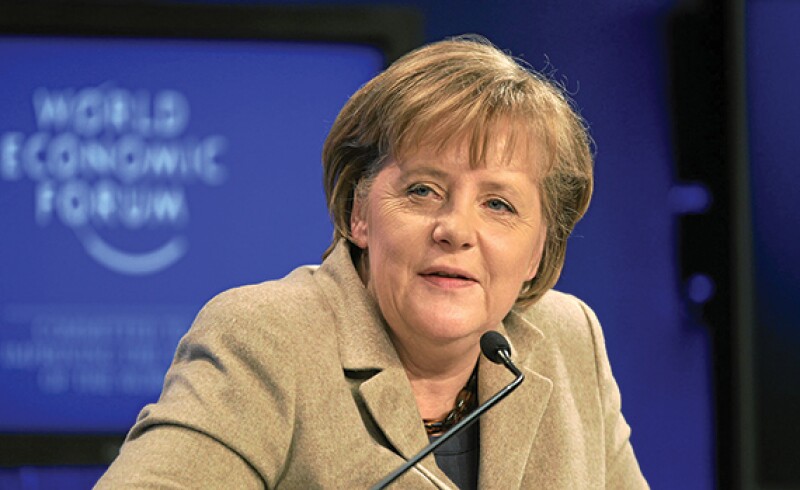
|
Angela Merkel was also in the Global Tax 50 2013 |
Angela Merkel remains the most powerful politician in Europe, making her an obvious candidate for inclusion in the Global Tax 50.
While her plate has been somewhat full in 2015 as she sought to deal with, first, Greece and then the refugee crisis and Germany's response to it, she still wields the political clout to influence tax decisions across the continent.
Greece, perhaps, is a good place to start. Merkel's Germany is the de facto leader of the Eurogroup, and she holds great sway with Greek creditors seeking to find a solution to Greece's decades-old tax collection woes.
It was Merkel, along with her finance minister Wolfgang Schauble, who closed the deal on Greece's 11th-hour bailout this summer. Alexis Tsipras, the Greek premier coming off a resounding 'no' vote from his people on whatever it was the creditors had to offer, eventually had no choice but to give in. Greece was crying out for expansionary measures, but Germany's influence ensures that the southern European jurisdiction will be made to honour its debts through VAT rises and more.
The fear of falling out of favour with the EU-IMF troika is so acute in indebted states that Portuguese President Anibal Cavaco Silva took the highly unusual [though not unprecedented – Portugal runs a French-style presidential republic] step in November of denying an anti-austerity coalition power, instead turning to pre-election leader Pedro Passos Coelho to form a minority government.
"After we carried out an onerous programme of financial assistance, entailing heavy sacrifices, it is my duty, within my constitutional powers, to do everything possible to prevent false signals being sent to financial institutions, investors and markets," said Silva.
Back to slightly clearer waters and Germany remains a key member of the group of EU countries pushing for the financial transaction tax (FTT), or 'Robin Hood tax', which would impose a levy on financial trades if implemented.
After what feels like decades of dithering, the jurisdictions involved seem to be finally moving towards a workable model, despite Estonia dropping out in December 2015. Without the significant weight of Merkel's Germany behind it, the FTT would undoubtedly completely dead in the water by now.
There are, however, examples of Germany's – and, by association, Merkel and Schauble's – influence fading a little. For all the strong-arming we saw in 2014 around the issue of intellectual property taxation, after Germany eventually persuaded the UK to water its patent box legislation down, the OECD's BEPS Project ended up legitimising the use of such patent boxes, setting out best practices for their use.
Germany, once a staunch opponent of patent box regimes, now looks set to introduce its own. As powerful and influential as Merkel is, politicians can only do so much when faced with tax competition from near neighbours.
The Global Tax 50 2015 |
|
|---|---|
The top 10 • Ranked in order of influence |
|
3. Wang Jun |
|
7. Ian Read |
|
The remaining 40 • In alphabetic order |
|









